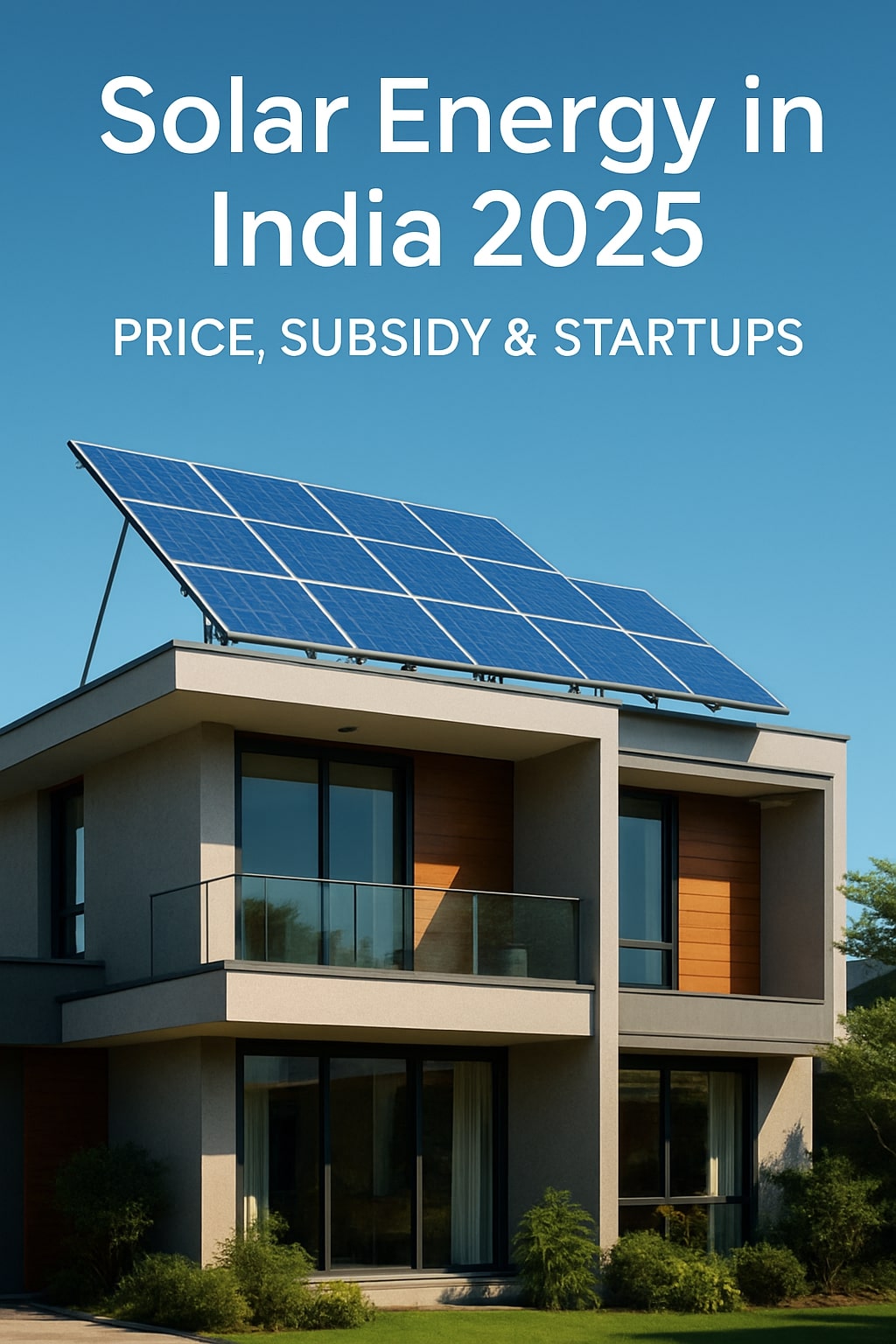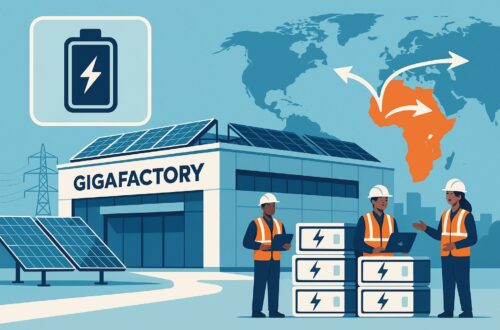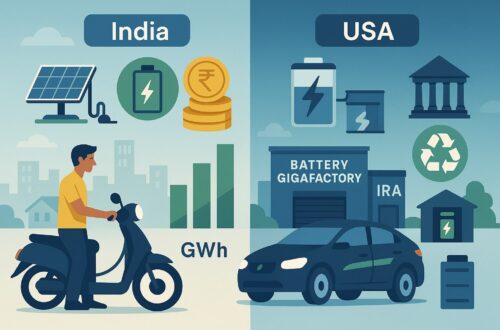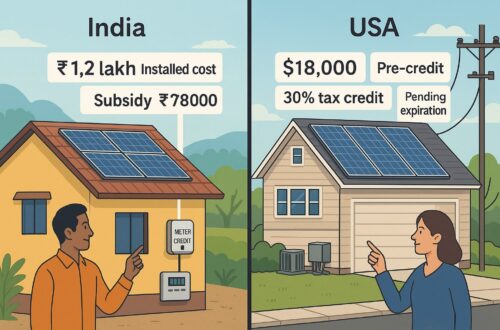In 2025, India is witnessing a massive surge in demand for solar energy solutions. With rising electricity costs and an increasing push for sustainability, solar panels and solar systems have become the top choice for both households and businesses. The Indian government’s green energy initiatives, combined with attractive solar panel subsidies, are fueling the growth of numerous solar startups across the country.
You may also like to Read:Solar panel in India vs. USA — In‑Depth Comparison (2025)
The Growing Demand for Solar Energy in India
- Energy Security: India’s energy consumption is among the highest globally. Solar energy provides a clean, renewable, and reliable alternative.
- Cost Effectiveness: The average solar panel price has dropped by more than 30% over the past few years, making solar energy more affordable.
- Government Push: India aims to achieve 500 GW of renewable energy by 2030, and solar power is a major contributor.
How Solar Energy is Transforming Rural India
Rural areas often face unreliable electricity or complete lack of grid connectivity. Solar energy is changing this by:
- Providing 24×7 Electricity: Solar microgrids are powering entire villages.
- Boosting Education: Schools in remote areas now have lights, fans, and even digital classrooms.
- Supporting Agriculture: Solar-powered water pumps help farmers irrigate fields at zero fuel cost.
- Empowering Women: Reliable electricity enables cottage industries like weaving, food processing, and handicrafts.
- Improving Healthcare: Rural health centers can run refrigerators for vaccines and medical equipment without outages.
Government programs like Kisan Urja Suraksha Yojana (KUSUM) are further pushing solar adoption in agriculture, making farming more profitable and sustainable.
Government Subsidies for Solar Panels in 2025
The Indian government is offering lucrative subsidies on solar panels under schemes like:
- PM Surya Ghar Muft Bijli Yojana: Up to 40% subsidy for residential solar systems.
- State-Level Incentives: Additional subsidies in states like Gujarat, Rajasthan, and Maharashtra.
- Net Metering Benefits: Earn credits by selling excess power back to the grid.
These policies significantly reduce the effective solar panel price, making it an excellent investment for homes and businesses.
You may also like:The rising popularity of UPVC https://businesszindagi.com/upvc-windows-and-doors/windows and doors in india in 2025
New Entrants and Solar Startups Leading the Market
Several innovative startups have entered the solar energy space in 2025, focusing on AI-based solar monitoring, low-cost solar panels, and smart inverters. Some promising names include:
- Loom Solar: Expanding affordable solar systems for residential use.
- ZunRoof: Specializing in AI-driven solar rooftop solutions.
- SolarSquare Energy: Offering easy financing options for solar panel installations.
These companies are making solar adoption easier with EMI options, quick installation, and IoT-based monitoring systems.
Benefits of Solar Systems for Homes & Businesses
- Lower Electricity Bills – Solar panels can cut your power bill by up to 70%.
- Long-Term Savings – Solar panels last 25+ years, making them a cost-effective solution.
- Eco-Friendly – Reduce carbon footprint and support the green energy revolution.
- Increase Property Value – Homes with solar systems have higher resale value.
Average Solar Panel Price in 2025
- Residential Rooftop Systems: ₹40,000 – ₹60,000 per kW
- Commercial Solar Systems: ₹35,000 – ₹55,000 per kW
- Premium Panels (High Efficiency): ₹60,000+ per kW
With government subsidies, the effective cost can drop by 20-40%, making solar energy affordable for the masses.
Future of Solar Energy in India
With green energy policies, solar startups, and technological innovations, the future looks bright for solar in India. By 2030, experts predict solar energy will power a significant portion of homes and industries, creating jobs and reducing pollution.
Investing in solar panels today is not just about saving money—it’s about building a sustainable future. With falling solar panel prices, government subsidies, and the rise of innovative solar startups, there has never been a better time to switch to solar systems in India.
✅ FAQs on Solar Panels and Solar Systems
Q1: What is the average solar panel price in India in 2025?
The cost ranges from ₹35,000 to ₹60,000 per kW, depending on panel quality and brand.
Q2: How much subsidy is available for solar panels in India?
Up to 40% subsidy under central and state schemes for residential solar systems.
Q3: Are solar panels cost-effective in India?
Yes. With government subsidies and lower solar panel prices, most households recover costs within 3–5 years.
Q4: Can I sell excess solar power?
Yes. Through net metering, you can sell surplus electricity back to the grid.






